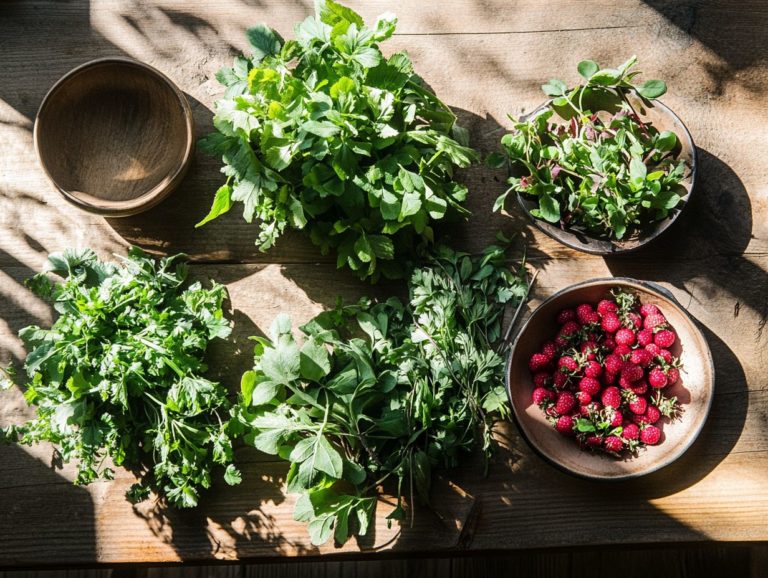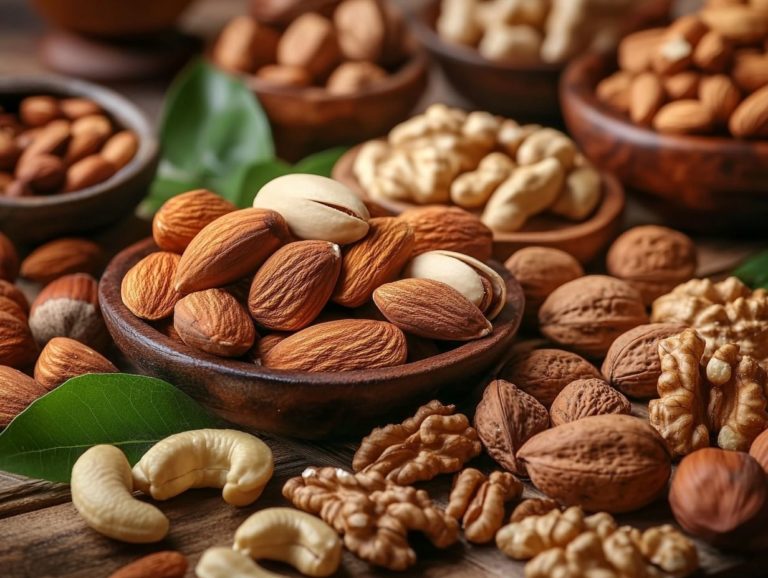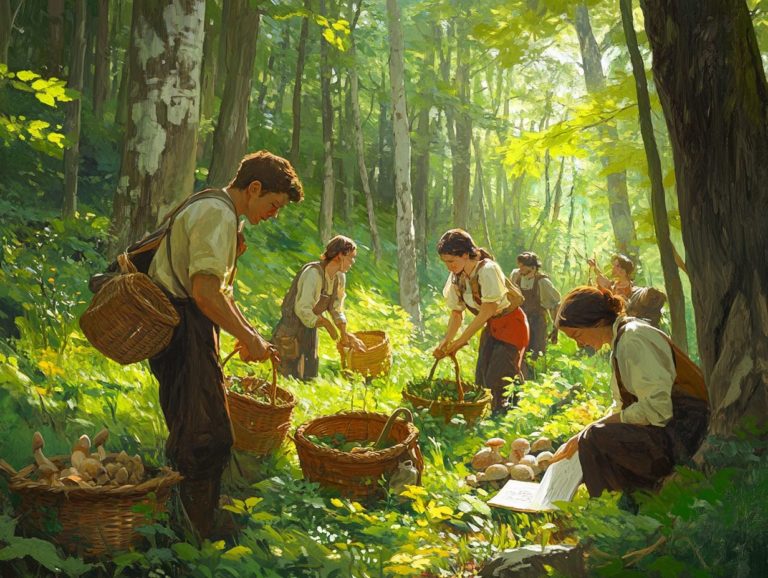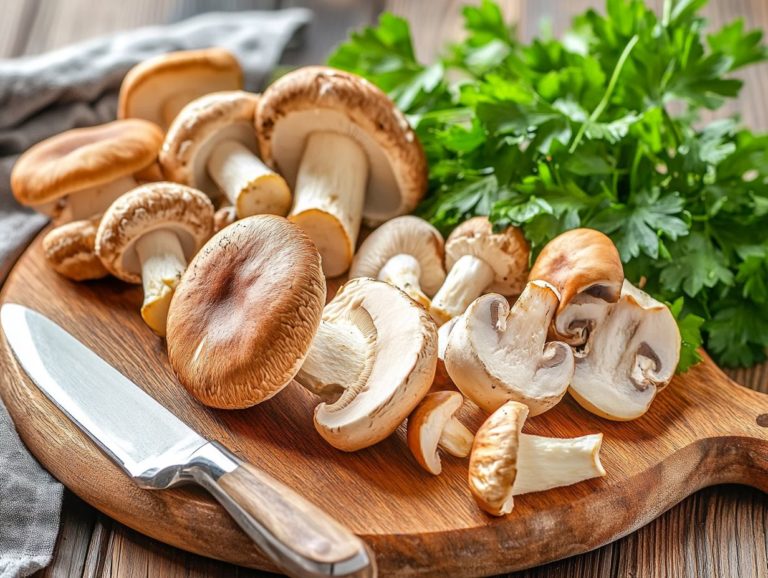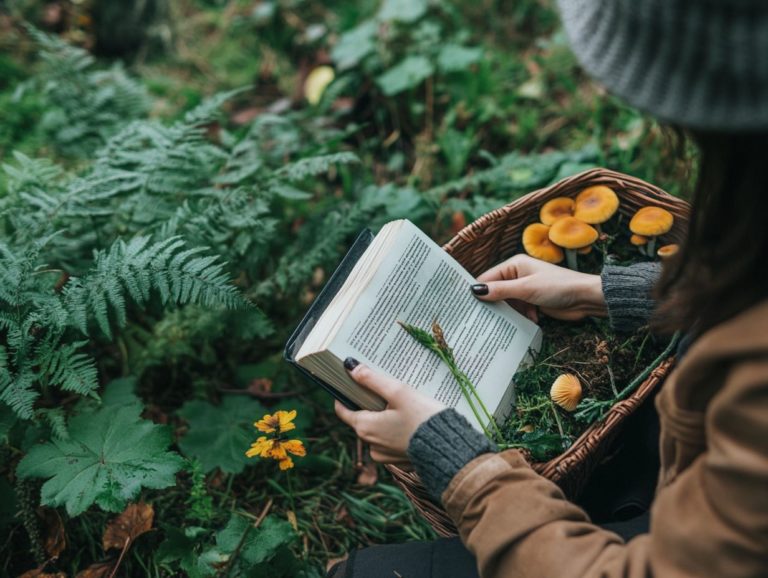What Are Local Foraging Permits Required?
Foraging for wild edibles offers a rewarding and sustainable way to connect with nature. However, grasping the legal landscape is essential for a responsible experience.
Local foraging permits are crucial for managing natural resources and ensuring responsible foraging. This guide delves into the definition and purpose of these permits, outlining the various types available, their benefits, and the application process.
It also brings attention to any limitations you should keep in mind. Whether you re a novice or an experienced forager, this information will empower you to navigate the world of local permits with confidence.
Contents
- Key Takeaways:
- The Concept of Local Foraging Permits
- Types of Local Foraging Permits
- Benefits of Obtaining Local Foraging Permits
- How to Obtain Local Foraging Permits
- Limitations and Restrictions of Local Foraging Permits
- Frequently Asked Questions
- What Are Local Foraging Permits Required?
- Who Needs to Obtain a Local Foraging Permit?
- What Types of Materials Can I Forage With a Local Foraging Permit?
- How Do I Obtain a Local Foraging Permit?
- What Are the Results of Foraging Without a Permit?
- Are There Any Exemptions to Needing a Local Foraging Permit?
Key Takeaways:
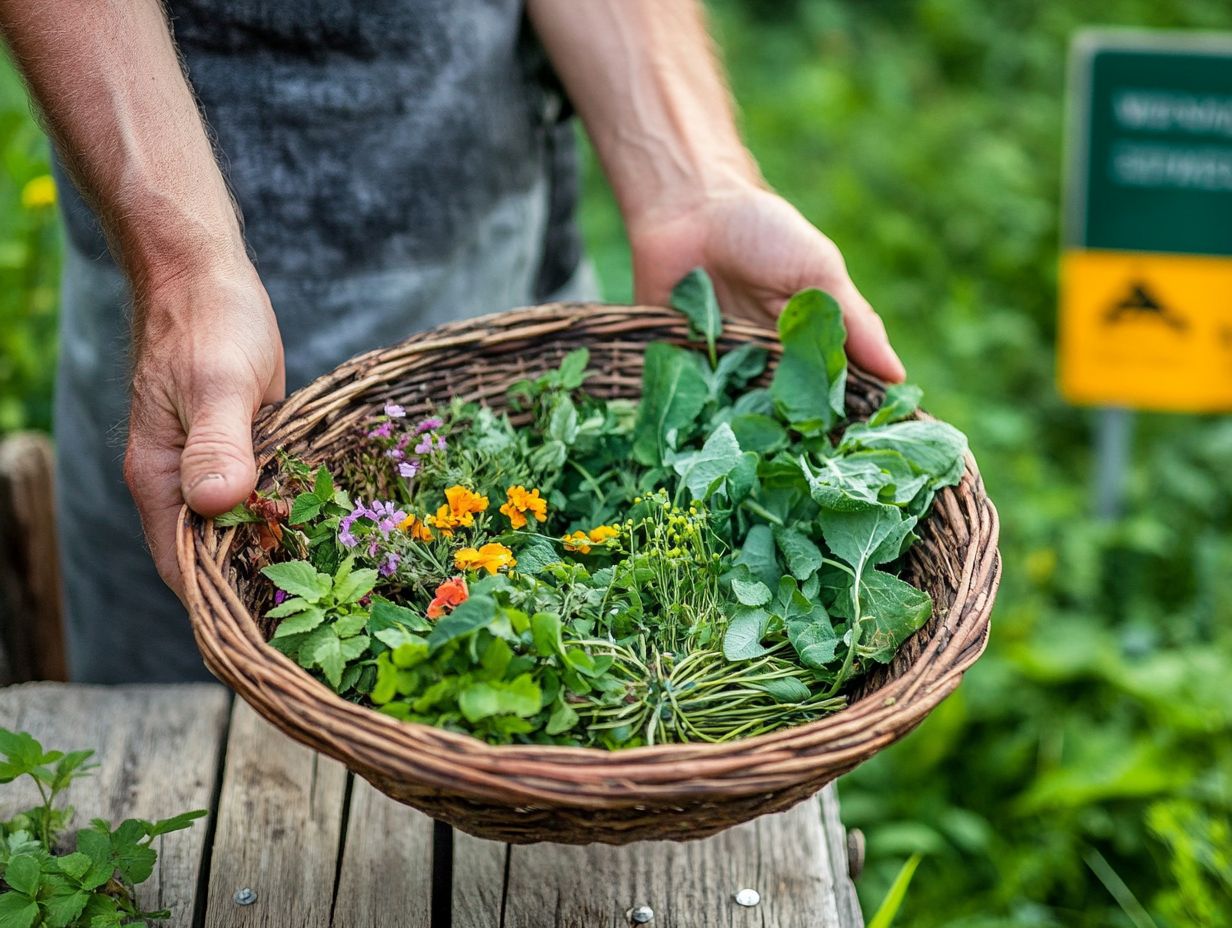
- Local foraging permits are required for individuals who wish to gather natural resources from public lands or private properties.
- Various types of local foraging permits exist, each with specific requirements and benefits, such as promoting environmental conservation and adhering to legal regulations.
- To obtain a local foraging permit, you must go through an application process and pay associated fees. However, limitations and restrictions on which areas and species can be foraged under these permits may apply.
The Concept of Local Foraging Permits
Local foraging permits are important tools that regulate the collection of wild edibles, including nonpoisonous mushrooms and edible wild greens, on public land in North Alabama. These permits ensure your foraging aligns with the established foraging laws, which govern how and where you can collect wild edibles.
By securing a permit, you can engage in foraging activities that support sustainable practices while respecting the delicate ecosystems present in areas such as Little River Canyon, Bankhead National Forest, and the National Preserve.
Definition and Purpose
Foraging permits are your official ticket to responsibly gathering wild edibles on public land. They ensure you engage with nature while adhering to foraging laws. These permits outline the scope of your activities and play a vital role in protecting ecosystems by regulating the collection of species like nonpoisonous mushrooms and edible wild greens, especially in areas like North Alabama.
These permits specify where, when, and what you can collect. Understanding these parameters is essential; it cultivates respect for biodiversity and contributes to the health of local ecosystems. Being aware of local regulations helps you avoid over-harvesting, which can significantly impact wild populations and their habitats.
By following these guidelines, you align yourself with conservation efforts and embrace a sustainable approach to enjoying the natural bounty that local landscapes offer, including resources protected by the Tennessee Valley Authority and the Land Trust of North Alabama.
Types of Local Foraging Permits
Understanding the various types of local foraging permits is essential for anyone interested in the laws governing public land use in North Alabama. Discover a variety of exciting permit options that suit your foraging adventures, whether you re after edible wild greens or on the hunt for mushrooms.
Keep in mind that regulations can differ significantly between locations, such as Wheeler National Wildlife Refuge and Alabama State Parks. Being aware of the specific requirements and restrictions in each area ensures a responsible and enjoyable foraging experience.
Different Permit Options and Requirements
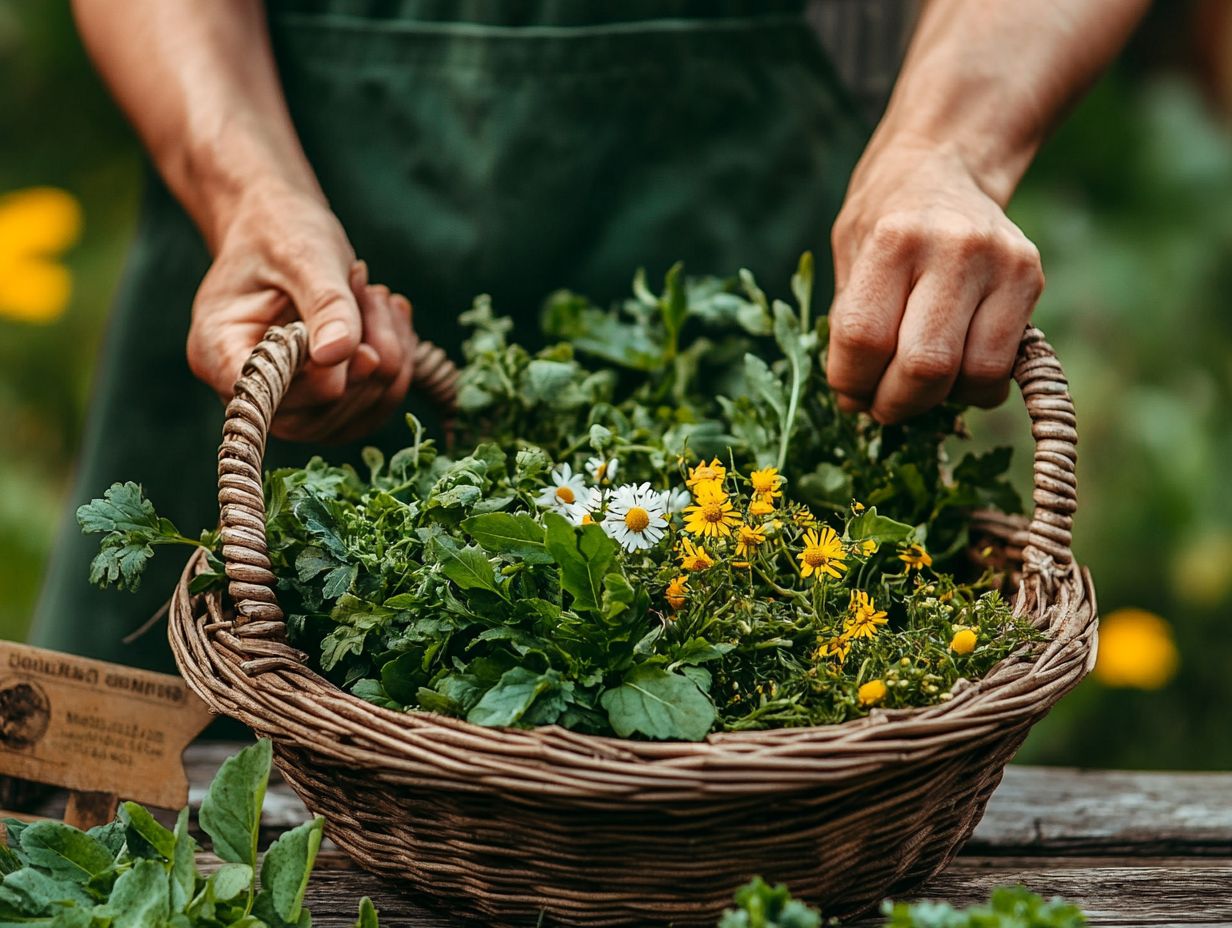
Different local foraging permits have various requirements based on your foraging activities and the specific rules for public land in North Alabama.
You may choose between permits for personal use and those for commercial use. Each type has its own criteria to help you comply with foraging regulations.
For instance, in Bankhead National Forest, a personal use permit often requires just a simple application and a small fee of about $10.
This permit allows you to gather limited amounts of edible plants or mushrooms for your own consumption.
If you want to forage for commercial purposes, you will dive into a more detailed application process.
This often includes studies on how your foraging might affect the environment and fees that can reach up to $100.
Certain species, like wild ginseng and ramps, have restrictions. Make sure to learn the local rules before you start foraging.
Benefits of Obtaining Local Foraging Permits
Getting local foraging permits brings many benefits. They enrich your foraging experience and support environmental stewardship in North Alabama’s ecosystems.
These permits simplify the rules around foraging regulations and promote sustainable practices. This helps to protect the natural resources found in public lands like Little River Canyon and Bankhead National Forest.
By following foraging laws, you help preserve biodiversity. You also enjoy the many health advantages of foraged foods.
Environmental and Legal Benefits
The benefits of local foraging permits are crucial, especially in North Alabama, where ecosystems rely on rich biodiversity.
These permits ensure your foraging methods are sustainable, protecting sensitive habitats and keeping you compliant with local foraging laws.
When you follow these regulations, you help sustain wildlife populations. This lets native plants and animals thrive without the risk of over-harvesting.
Understanding legal restrictions shields you from hefty fines and boosts the health of local ecosystems.
Your responsible actions enhance your foraging experience and positively impact both the community and the environment.
How to Obtain Local Foraging Permits
Getting local foraging permits in North Alabama is straightforward. However, you need to pay careful attention to the steps outlined by local authorities.
Familiarize yourself with the application process to ensure you meet all criteria. Also, be ready to pay any associated fees for the type of permit you want.
Depending on your location, like the Wheeler National Wildlife Refuge, you may need extra documents to collect certain species or for commercial purposes.
Application Process and Fees
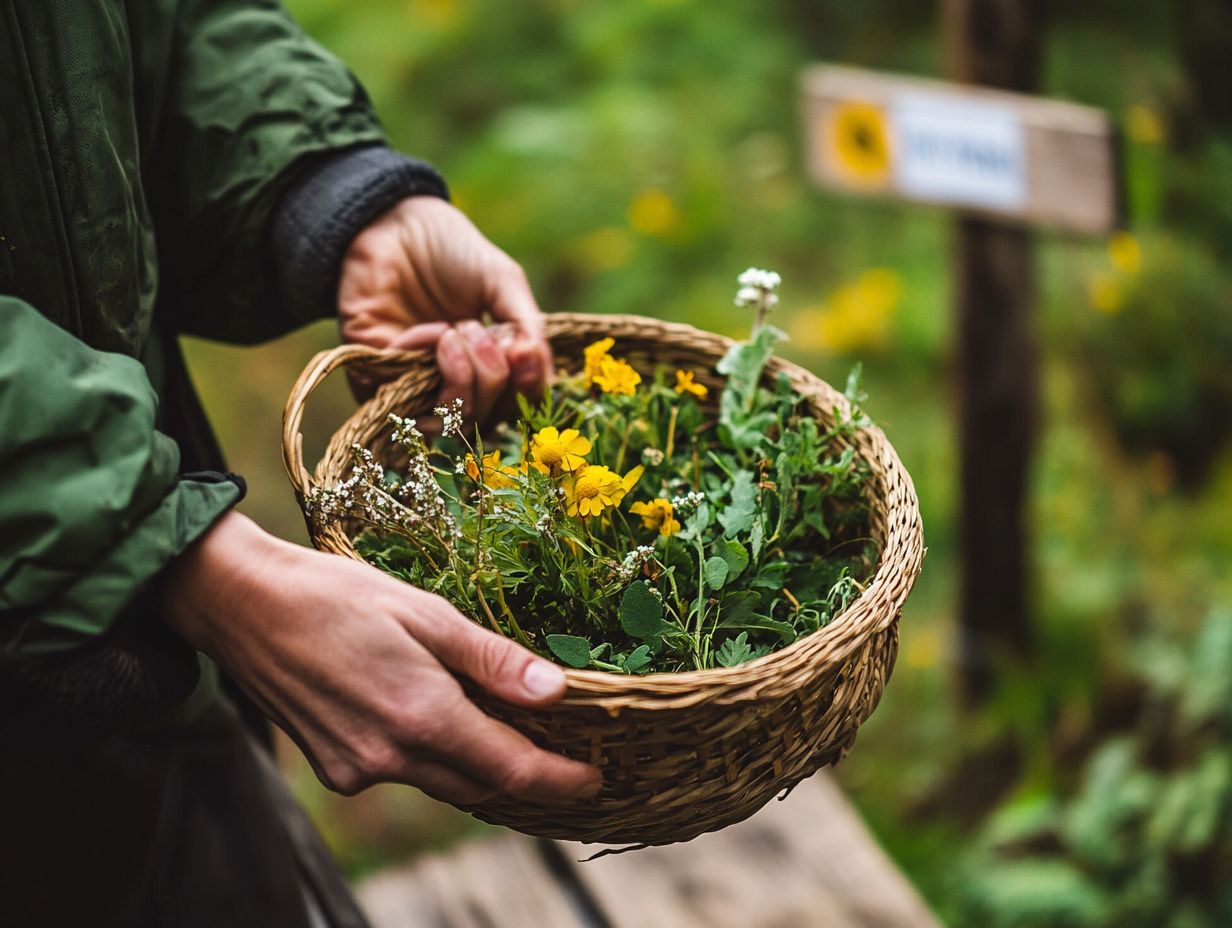
Foraging permits in North Alabama require several key steps. You ll need to provide personal identification and details about your foraging activities.
To begin, obtain the necessary forms from the local wildlife department’s website or their office. Fill them out accurately, including your contact information and intended foraging locations.
Payment can be made via credit card, check, or cash, depending on the department s guidelines.
After submitting your application, note that there may be waiting periods. These can range from a few days to several weeks, especially for special use permits.
If you re interested in special use permits, check for any extra fees that may apply based on your proposed foraging activities.
Limitations and Restrictions of Local Foraging Permits
Local foraging permits in North Alabama offer many opportunities. However, understanding the specific limitations and restrictions is crucial.
These permits outline designated areas within public lands, such as Bankhead National Forest and Alabama State Parks, where foraging is allowed. They also specify species that are off-limits due to environmental protection.
For example, some regions may require a special use permit to harvest high-demand species like American Ginseng. This promotes sustainable practices.
Knowing these details helps you forage responsibly and enjoyably while respecting conservation and responsible stewardship.
Areas and Species Excluded from Permitting
Certain areas and species are off-limits to protect sensitive ecosystems in North Alabama. For example, Wheeler National Wildlife Refuge restricts harvesting certain edible wild greens and fungi to prevent ecological imbalance.
Protected species, like the Eastern Red Cedar and various wild orchids, cannot be collected due to their declining populations. These species play an essential role in the local ecosystem.
If you re considering harvesting other species, such as ramps, be aware that permits may be necessary. Over-harvesting can significantly reduce their numbers. These restrictions help maintain biodiversity and protect critical habitats for wildlife.
By following these guidelines, you help protect the natural resources and landscapes cherished by future generations.
Frequently Asked Questions
What Are Local Foraging Permits Required?
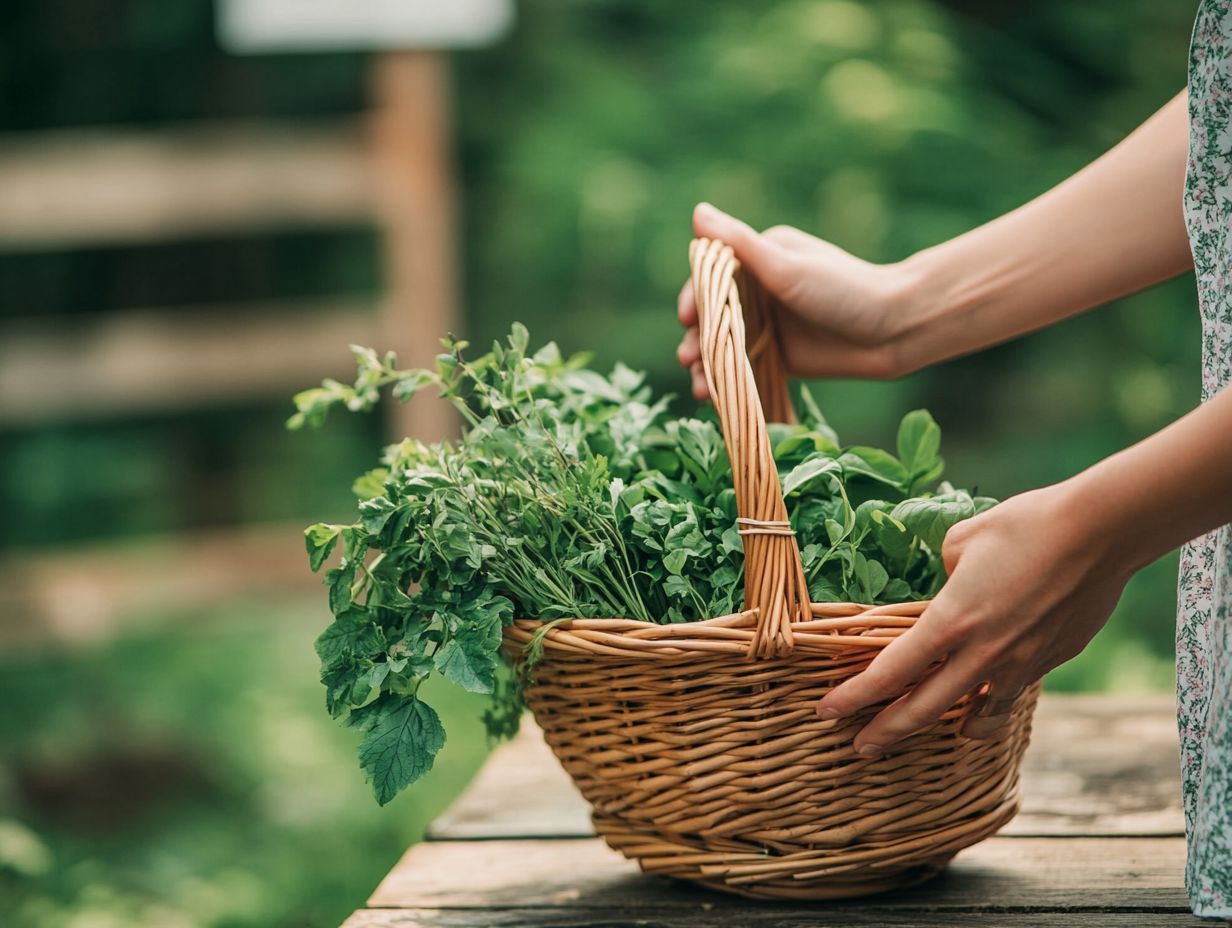
Local foraging permits are necessary for anyone who wants to collect or harvest natural materials from a specific area, like a forest or public land. To understand more about this process, including the legalities of foraging, it’s important to note that these permits, issued by the local government, regulate foraging activities to preserve the environment and ensure sustainability.
Who Needs to Obtain a Local Foraging Permit?
Anyone wishing to forage for natural materials, such as herbs, mushrooms, or berries, in a specific area needs a local foraging permit. This requirement includes individuals, groups, and businesses.
What Types of Materials Can I Forage With a Local Foraging Permit?
The types of materials that can be foraged with a local foraging permit depend on the specific area and its regulations. Common materials include wildflowers, mushrooms, firewood, and certain types of plants.
How Do I Obtain a Local Foraging Permit?
The process for obtaining a local foraging permit varies by area. Generally, you fill out an application and pay a fee.
Some locations may require you to attend a training or orientation session before receiving your permit.
What Are the Results of Foraging Without a Permit?
Foraging without a permit is illegal and can result in fines. It may also cause over-harvesting, harming the local ecosystem and the environment in the long run.
Are There Any Exemptions to Needing a Local Foraging Permit?
Excitingly, some areas do allow exemptions for specific materials or small quantities! Always check with local authorities to confirm if a permit is required for your foraging activities.

